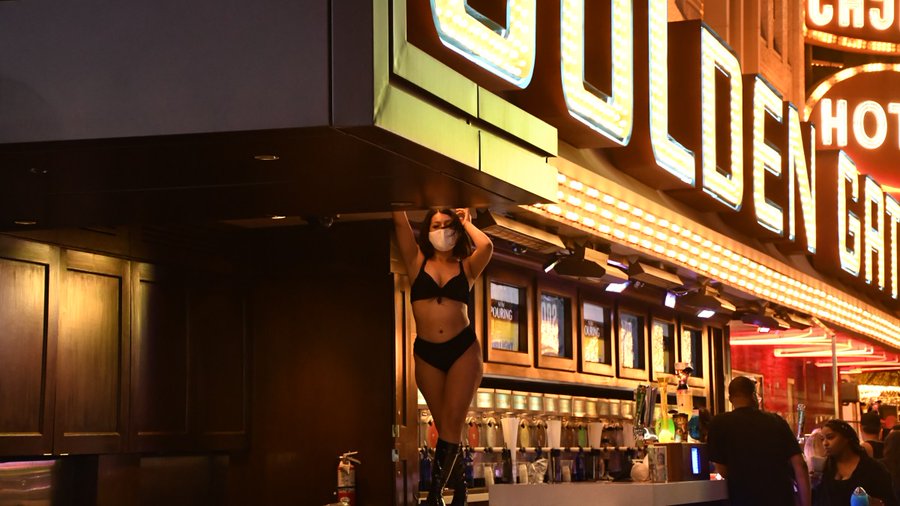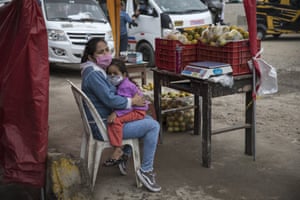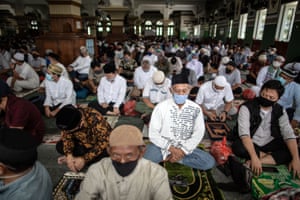Casino in Sydney is also still closed and Sydney has had no new community cases for a week. Only new cases are international arrivals that go straight to forced hotel quarantine. Gyms are also still closed and are likely the last to open.
I believe their last estimate was still under 10%. Only 5-7x more to go. Oops.
To me it seems like these journals are doing the right thing here? Unless I miss something, they’re retracting a study that can’t be verified.
Every major science journal publishes shit that winds up being completely wrong, esp in medicine. Science is messy, people make mistakes, I’m going to give the Lancet and the NEJM credit for exercising caution here.
uhhh who me?
I just think one of the coolest things about working in a scientific field is seeing experts openly admit they were totally wrong about shit or they don’t know what’s going on. Journals retracting studies is a sign of academic honesty. More organizations need to have that kind of mindset.
Freeeeeeduuuuumb.
So 25% unemployment is good for… casinos?
Trump poker boom here we come. Damn that Mason is a visionary.
Traffic in LA is not back to normal, but is creeping up.
Carpooling is contrary to social distancing.
And then the public loses their shit about and “can’t trust science”.
Science does a much better job than any other profession of policing their own and will throw anyone under the bus as results dictate.
But the public only looks at the outliers. Frustrating. Most of the time outliers are bullshit and someone usually figures it out and corrects it. (Quite often the original author). Once in awhile the outlier is a discovery or leads to it.
Has anyone looked at what the lancet retraction means?
I’m assuming still no benefit but the degree of harm from fish cleaner is in doubt??
The R value in the UK has risen to between 0.7 and 1 , according to the government’s latest official estimates with some regions now at risk of seeing a rise in the number of infections.
The latest data suggests that the north-west of England is an area for concern and that some local authorities may have R-values – the rate of transmission – above 1, at which point the epidemic will begin to grow in these communities.
The Government’s chief scientific adviser Sir Patrick Vallance told a virtual briefing with journalists on Friday the R-number - the average number of people that will contract coronavirus from an infected person - for England was between 0.7 and 1, while it remained between 0.7 and 0.9 for the UK as a whole.
He said the prevalence of Covid-19 was on a “downward trajectory” in the UK, adding:
The prevalence of coronavirus, according to the ONS, is at 0.1%, with 53,000 people with Covid-19 in the past two weeks.
He said the incidence rate was at 0.7% per week, which meant there were “roughly” 39,000 new coronavirus cases each week.
Sir Patrick said:
The latest R-value calculation is between 0.7 and 0.9 for the UK as a whole, it may be a little bit higher in England it may be between 0.7 and 1, and there is a bit of regional variation.
Peru is beginning the second phase of its economic reopening on Friday, even as its ongoing coronavirus outbreak showed little signs of slowing, with 4,284 new confirmed cases reported on Thursday.
The president, Martin Vizcarra, announced the second phase of lockdown easing on Thursday, after his council of ministers approved a presidential decree calling for the restart of economic activity.
Peru is the second-worst affected country in Latin America, the region which the World Health Organisation has said is now at the centre of the global coronavirus pandemic. In spite of an early and strictly enforced lockdown it has so far reported a total of 183,198 coronavirus infections and 5,031 deaths from Covid-19 - 137 of which were reported on Thursday.
Maria Garcia embraces her daughter Sofia, while selling oranges on a street in Lima. Photograph: Rodrigo Abd/AP
The economic shutdown has caused widespread hardship in Peru, where much of the population survives from working in the informal economy. Vizcarra’s plan is for 80% of the country’s economy to resume operation from Friday. During lockdown, the economy has been operating at 50% capacity, which Vizcarra said was “not enough to sustain 100%” of the country’s needs.
“We want to raise it to 100% and then even see growth on top of that,” Chinese news agency Xinhua quoted Vizcarra as saying.
Among the sectors scheduled to return to work from Friday were small and medium-size mining enterprises, feed-making for animals, alcoholic beverages and tobacco products, footwear production, printing, and medical tools manufacturing and repair, services including legal and accounting firms, architecture and engineering companies, as well as some retail.
Sweden records third consecutive day of over 1,000 new cases
Sweden reported another large rise in new cases of coronavirus on Friday, with the 1,056 positive tests reported by the public health agency marking the third day the country’s caseload had increased by more than a thousand.
While a bumper report of 2,214 cases on Wednesday was partly explained by a lab releasing a backlog of results, on Thursday, after another 1,084 cases were reported, the public health agency said the rise in cases could not wholly be explained by increased testing.
The agency’s chief epidemiologist, Anders Tegnell, told a news conference on Thursday that the increases in new cases was seen primarily in Western Sweden and among younger people.
Sweden has now recorded 42,939 cases of coronavirus, and 4,639 deaths after another 77 deaths were reported on Friday - not all of which will have occurred within the past 24 hours due to reporting delays from local areas. The death rate remains well below a peak reached towards the end of April.
The Swedish approach to tackling the coronavirus has been described as “light touch”, with shops, gyms and restaurants allowed to stay open, and the public simply asked to avoid non-essential travel or venturing out if unwell.
Lockdown sceptics who thought that the kinds of lockdown measures seen elsewhere in Europe had gone to far have hailed the strategy. But criticism has been mounting after the per capita death rate in the country far exceeded its close neighbours.
Earlier this week, Sweden’s coronavirus death rate surpassed that of France. However, it remains well below the UK, Italy, Spain and Belgium - all countries which have enforced curbs on freedoms in attempts to contain the spread of the disease.
Mosques, churches and other places of worship reopened in Jakarta for the first time in nearly three months on Friday, as the Indonesian capital loosened a partial lockdown, AFP reports.
Jakarta’s governor announced the easing of restrictions on Thursday, with offices, restaurants, shopping malls and tourist attractions also scheduled to reopen in the coming weeks.
While mosques have remained open in some other parts of Indonesia, the world’s biggest Muslim majority country, for many residents of Jakarta, a megacity that is home to about 30 million people, it was their first time attending Friday prayers since mid-March.
Al-Azhar mosque in Jakarta. Photograph: Donal Husni/ZUMA Wire/REX/Shutterstock
Mohamad Fathi, 35, said he was “full of happiness” at the news. “It cheered me up and satisfied my longing for mass prayers,” he told AFP. “I’m very happy we’re now allowed to return to pray.”
However, the weekly service was shorter than usual as part of efforts to lower the risk of COVID-19 infections, he said. Mosque-goers were also ordered to bring their own prayer mats and abide by social-distancing rules with temperature checks at the door.
On Friday, Indonesia reported 703 new cases of coronavirus and 49 coronavirus-related deaths. There have now been a total of 29,521 infections in the country of 274 million people, and 1,770 deaths.
US clothing retailer Gap has reported a quarterly loss of almost $1bn, after it had to close the vast majority of its stores worldwide during the coronavirus shutdown, writes Joanna Partridge , for the Guardian’s business desk.
The company, based in San Francisco, made a loss of $932m (£738m) for the three months to 2 May, compared with $227m profit during the same period in 2019.
The retailer, know for its denim, chinos and T-shirts, included in its quarterly loss a $484m write-down on its stores and operating lease assets, and a $235m charge on excess stock.
Like many of its competitors, Gap has been left with mountains of seasonal clothing that it has not been able to sell while 90% of its global stores were temporarily forced to close during lockdown.
Retailers of non-essential goods, such as clothing, have been significantly affected by store closures across many territories, which were designed to slow the spread of Covid-19.
The pandemic triggered several high-profile retail insolvencies in the US, including fashion chain JCrew, and department store chains JC Penney and Neiman Marcus.
The group, which also owns the Old Navy and Banana Republic brands, said that customers were focused on buying casual clothes while staying at home, hitting sales at Banana Republic, which offers more workwear.
US billionaires gain half a trillion dollars during outbreak
Even as more than 42 million people have signed on as unemployed in the US , the country’s billionaires have added half a trillion dollars to their combined wealth, according to a thinktank report.
During the 11 weeks from 18 March, when US lockdowns started, the wealth of America’s richest people surged by over $565bn, the Institute for Policy Studies calculated in a report published on Thursday.
Jeff Bezos, founder of Amazon, has benefited the most, as orders at his online delivery service soared, with his wealth increasing by an eye-watering $36.2bn. Mark Zuckerberg was the second biggest beneficiary, increasing his net worth by $30.1bn. Even Bill Gates, who has positioned himself as global health saviour by backing a number of Covid-19 vaccine projects, has ended up $11.8bn better off.
- Jeff Bezos – up $36.2bn
- Mark Zuckerberg – up $30.1bn
- Elon Musk – up $14.1bn
- Sergey Brin – up $13.9bn
- Larry Page – up $13.7bn
- Steve Ballmer – up $13.3bn
- MacKenzie Bezos – up $12.6bn
- Michael Bloomberg – up $12.1bn
- Bill Gates – up $11.8bn
- Phil Knight – up $11.6bn
- Larry Ellison – up $8.5bn
- Warren Buffett – up $7.7bn
- Michael Dell – up $7.6bn
- Sheldon Adelson – up $6.1bn
Chuck Collins, a co-author of the report, said:
These statistics remind us that we are more economically and racially divided than at any time in decades.
University of Oxford ends hydroxychloroquine trial
A University of Oxford trial into anti-malarial drug hydroxychloroquine will end with “immediate effect” after it was found to be ineffective against Covid-19, researchers have said.
The Recovery trials, which look at potential coronavirus treatments, involve a number of medications that are licensed for use for other conditions, including hydroxychloroquine.
But, after reviewing the data on Thursday, the chief researchers decided to end the hydroxychloroquine arm of the trial after it was found to be not effective in preventing the deaths of coronavirus patients in hospital.
Researchers found that 25.7% of patients who were given hydroxychloroquine died after 28 days, compared with 23.5% of people who had standard care alone.
It comes after an influential article in medical journal The Lancet, which found hydroxychloroquine increases the risk of death in coronavirus patients, was retracted over data concerns.
I’m behind in this thread because I’ve been almost exclusively keeping up with the George Floyd stuff but here’s the latest from my area:
Cases are way up at my hospital and our sister hospital in town. Phoenix hospitals are getting so overrun that they may start shipping patients down here. Guess the magical woo woo that was supposed to take effect when we became OPEN FOR BUSINESS didn’t work.
1579 new cases confirmed today for Arizona. Ouch.


